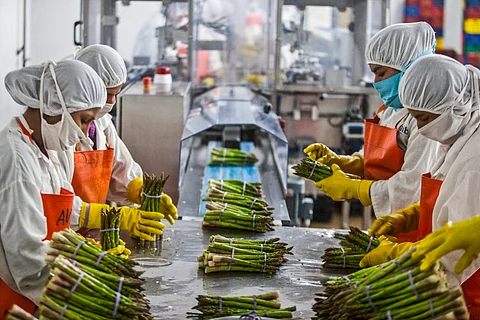
- Home
- Live Blog
- Breaking News
- Top Headlines
- Cities
- NE News
- Sentinel Media
- Sports
- Education
- Jobs

The Pradhan Mantri Formalisation of Micro Food Processing Enterprises (PMFME) triggered hopes for addressing the problem of huge wastage of highly perishable fruits and vegetables in Assam through the development of the food processing sector in the state. Dismal performance in the implementation of PMFME in the state is primarily attributed to low volume in the approval of applications by banks. Official data shows that when only one financial year is left for the scheme to lapse, applications of less than one third of the target of a total of 9,000 food processing projects have been approved in the state. The issue speaks volumes about credit availability persisting as a roadblock despite the government announcing attractive incentives to tap the potential of the food processing industry in the state. The central government earmarked a total outlay of Rs. 10,000 crores for the scheme, which is operational from 2020-21 to 2025-26. This implies that there is no dearth of funds for providing financial assistance to micro food processing enterprises to formalise their agribusiness initiatives. The low volume of approval of loans under the scheme is only reflective of an opportunity missed, despite the state being endowed with favourable agroclimatic conditions for the growth of the food processing industry. The primary objective of the scheme is to enhance the competitiveness of existing individual micro-enterprises in the unorganised segment of the food processing industry and bring them into the formal sector. Financial assistance offered to the enterprises under PMFME Scheme includes credit-linked capital subsidy at the rate of 35% of the eligible project cost with maximum ceiling of Rs.10 lakh per unit; seed capital at the rate of Rs. 40,000 per member of Self Help Groups engaged in food processing for working capital and purchase of small tools subject to maximum of Rs. 4 lakh per SHG; credit-linked capital subsidy at the rate of 35% subject to maximum of Rs. 3 crore to support FPOs, SHGs, Cooperatives and any government agency for setting up of common infrastructure; branding and marketing support of up to 50% to farmer producer organisations, SHGs, Cooperatives and training to meet the requirement of food processing industry and product specific skilling. The arrival of fresh fruits in daily fruit markets in Guwahati and various towns from production clusters in large quantities is indicative of high demand for fresh fruits among consumers. The harsh reality for fruit sellers is that despite the growing demand due to high perishability, the wastage is also high. The demand for processed food in shopping malls and retail units, on the other hand, signifies the growth in domestic demand for processed foods, which could have been locally met if adequate processing capacities could be built in the state. Industry stakeholders, however, point towards the non-availability of an adequate quantity of most fruits or vegetables for commercial-scale production of processed foods. The farmers growing these fruits will be keen to expand the area to boost production only when they are assured of a remunerative price. Due to the dearth of cold storage, the traders are not willing to place higher demand and limit purchases of fresh fruits from growers in the state, keeping in mind the window of perishability. A small window of perishability also puts growers in a disadvantageous position in price negotiation, which explains the practice of subsistence farming for most growers, except some progressive farmers. Formalisation of more food processing units through expansion of production capacity, aggressive branding and marketing, and modernising processing units through credit linkage and disbursement of subsidies eligible under the PMFME scheme can reverse the scenario. While efforts must continue to achieve the target, hand-holding support to nearly three thousand enterprises, applications of which have already been approved, will be critical to generate demand for locally grown fruits and vegetables. Formalisation of micro food processing enterprises and expansion of areas under horticultural crops for increasing production together will generate huge employment and livelihoods in the food processing sector in the state. Dairy is another sector eligible to receive credit-linked subsidies, seed capital, branding and marketing support under the PMFME scheme. Milk being a highly perishable food product, milk processing has been a part of traditional food culture, with people making curd, sweets, and paneer at the household level and microenterprise levels catering to local daily demand for sweets and paneer for hotels and restaurants and special demand during festivals. Yet, high demand for dairy brands from outside the state indicates the high potential for aggregating milk production through cooperatives and leveraging the PMFME scheme to spur the growth of local dairy brands in the state to generate livelihoods and augment the income of farmers from livestock rearing. Banks playing a proactive role in collaboration with government departments in the formalisation of micro food enterprises in the state will go a long way in tapping Assam’s potential. The food processing industry is recognised as a sunrise sector in India, and Assam cannot afford to miss the bus.